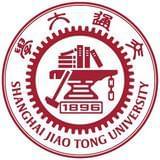2024年12月12日,SJTU-SMU DBA 2020级邵帅同学在新加坡管理大学李光前商学院迎来了他论文的答辩时刻。SJTU导师路琳教授,SMU导师耿雪松教授及CHEN Xia教授,一起参加并见证了邵帅同学的毕业答辩。
论文题目
政治嵌入与组织韧性:民营企业制度转译机制的实证研究与理论构建

邵帅
ShaoShuai
SJTU-SMU DBA 2020级
深圳乐美尚科技有限公司创始人
1
作者简介:
邵帅先生本科毕业于中南大学管理信息系统专业,获得管理学学士学位,并于2013年在上海交通大学安泰经济与管理学院获得MBA学位。他目前在上海交通大学-新加坡管理大学攻读DBA学位。邵帅拥有 20 多年的工作经验,包括企业数字化转型、IT系统集成和物联网等领域,2014年,邵帅创立了深圳乐美尚科技有限公司,该公司已发展成为中国领先的智能家居解决方案提供商。
在始于2020年的DBA旅程中,邵帅先生的主要研究兴趣在组织理论和组织战略领域。通过二手数据、深度访谈和案例研究,他深入思考了政治嵌入对民营企业组织韧性的影响,创新性地提出了“政治-实践张力与组织韧性转译模型”,揭示了民营企业将制度要求重构为组织能力以及意义构建过程的转译机制。
2
论文摘要:
本研究采用混合研究方法,探讨民营企业如何在中国独特的制度背景下实现组织韧性,以及实现的机制。研究包括两个相互关联的研究,采用解释性序列设计:研究1采用实证分析,探讨政治嵌入如何影响组织韧性及其边界条件;研究2采用定性方法,解析政治-实践张力关系的转译机制——制度压力与企业实践之间的动态相互作用。
研究1利用AI驱动的聚合搜索来收集关于政治嵌入私营企业的关键数据,分析了来自2,087家私营上市公司的面板数据。该研究采用倾向得分匹配(PSM)来减轻选择偏差,通过线性回归模型来分析组织受外部冲击后的恢复程度,并应用Kaplan-Meier生存分析和Cox比例风险模型来分析恢复速度。研究2通过对108家民营企业的深度案例研究,发展出一个"政治-实践张力与组织韧性转译模型",揭示了张力下组织韧性的形成机制及制度压力转译路径。
3
导师团队:
GENG Xuesong
Dissertation Committee Chair
(xsgeng@smu.edu.sg)
Full-time Faculty
Associate Professor of Strategic Management of Lee Kong Chian School of Business, SMU
Lin LU
Co-Supervisor
(lulin@sjtu.edu.cn)
Full-time Faculty
Professor of Organization Management ACEM, SJTU
CHEN Xia
Committee Member(s)
(xchen@smu.edu.sg)
Full-time Faculty
Lee Kong Chian Professor of Accounting, School of Accountancy, SMU.
4
Abstract:
China is governed by the Communist Party of China (CPC), which embodies the nation's core values, mission, and ideological framework. The CPC organization embeddedness represents a distinctive governance arrangement, reflecting the state's Political Integration Imperatives. In the context of significant external shocks such as Covid-19, how does this political embeddedness influence private enterprises' organizational resilience - specifically their capacity to withstand disruptions and their ability to recover? What are the underlying mechanisms driving these effects?
This study employs a mixed-methods approach to investigate how CPC organization embeddedness shapes organizational resilience within China's unique institutional context, and the mechanisms through which this influence operates. The research consists of two interconnected studies following an explanatory sequential design: Study 1 employs large-scale empirical analysis to examine how CPC organization embeddedness affects organizational resilience and its boundary conditions; Study 2 utilizes qualitative methods to unpack the translation mechanisms of political-practice tensions - the dynamic interplay between institutional requirements and enterprise practices.
Study 1 analyzes panel data from 2,087 private listed companies, utilizing AI-powered aggregated search to collect key data on CPC organization embeddedness in private enterprises. The study employs Propensity Score Matching (PSM) to mitigate selection bias, develops linear regression models to examine post-Covid-19 recovery levels, and applies Kaplan-Meier survival analysis and Cox proportional hazards models to investigate recovery speeds. The findings reveal that CPC organization embeddedness significantly enhances organizational resilience in terms of both recovery speed and recovery level. This effect is amplified when the company chairman holds CPC membership, demonstrating the greater impact of substantive institutional embedding from an institutional theory perspective.
Study 2 develops a "political-practice tension and organizational resilience translation model" through in-depth case studies of 108 private enterprises, uncovering the formation mechanisms of value tensions and their transformation pathways. The findings reveal a distinctive value tension emerging from the interplay between political integration imperatives (stemming from state intentions) and economic rationality orientation (arising from private enterprises' objectives). This tension achieves creative integration through a translation mechanism based on institutional sense making, manifesting across three synergistic dimensions: (1) employee psychological perception - building organizational identity through dual pathways of left-wing ideology and nationalism; (2) external resource acquisition - leveraging institutional practices for government-enterprise interaction and resource integration; (3) internal organizational enhancement - optimizing governance mechanisms through an embedded structure analogous to the HR Business Partner model.
This study makes several contributions: Methodologically, it innovates by employing AI-powered aggregated search instead of traditional web crawling to extract key data from vast internet sources. Theoretically, it advances understanding in four ways: 1) it enriches empirical research on organizational resilience by simultaneously examining both recovery level and recovery speed; 2) it employs mixed methods to uncover both the causal relationships and underlying mechanisms through which CPC organization embeddedness influences organizational resilience; 3) it extends institutional logic research by illuminating how value tensions generate positive outcomes through translation mechanisms; 4) it develops a translation model of Institutional pressure-organizational capability, grounded in Chinese private entrepreneurs' pragmatic orientation within China's distinctive institutional context. Practically, this research offers both theoretical guidance and actionable insights for private enterprises seeking to build organizational resilience within complex institutional environments.

SJTU – SMU DBA
项目简介
SJTU – SMU DBA项目是上海交通大学安泰经济与管理学院与新加坡管理大学李光前商学院联合举办的一个高等学位教育项目,结合了中西方顶尖学术力量,立足中国、放眼全球、旨在培养集应用、管理、研究大成于一体的企业家和管理者。本项目充满了创新与挑战精神,在课程设置上侧重研究理论与方法的传授,在应用研究上追求商业实践与学术的结合。学员从不同的视角来探索全球商业社会,在系统学习和论文答辩后,获得新加坡管理大学工商管理博士学位。

咨询电话:021-52301020
阅读更多

关注“交大安泰高管教育”






























热门跟贴